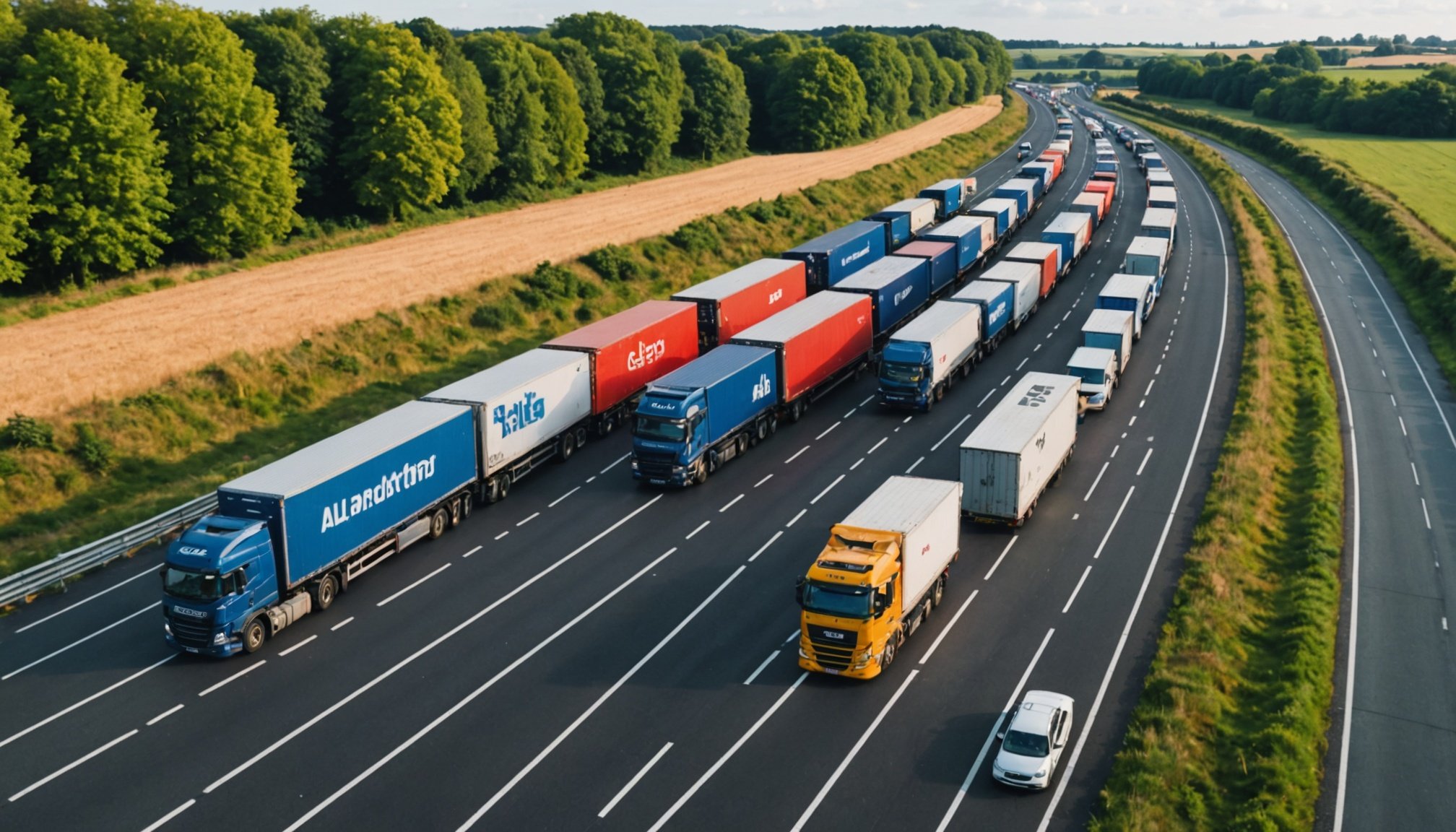Understanding AI and Machine Learning in Supply Chain Logistics
The integration of AI in supply chain and logistics is transforming the industry with unprecedented efficiency. These technologies allow for precise machine learning logistics operations, optimizing routes and reducing costs. Currently, the application of AI in the supply chain focuses on big data analytics and automation, streamlining processes to enhance productivity.
One of the foremost applications of AI is route optimization, where machine learning algorithms analyze vast amounts of data to determine the most efficient delivery paths. By assessing traffic patterns, weather conditions, and other real-time factors, logistics companies can minimize delays and fuel consumption, resulting in substantial cost savings.
Also to discover : Transformative Strategies for UK Consultants to Elevate Client Relationship Management Success
In the UK, the supply chain sector is seeing significant innovations with the adoption of AI and machine learning. Companies are increasingly leveraging these technologies to remain competitive and meet growing consumer expectations for quicker and more reliable service. These innovations are not just limited to large corporations; small and medium enterprises are also tapping into these capabilities, ensuring they do not lag in an evolving marketplace.
Harnessing the power of AI and machine learning is crucial for businesses striving to maintain agility and resilience. As these technologies continue to evolve, their role in logistics will only expand, promising more efficient and sustainable supply chain operations.
Also to see : Elevate Inventory Management: Cutting-Edge AI Techniques for Retailers in the UK
Benefits of AI and Machine Learning for Route Optimization
The benefits of AI logistics are profound, particularly when it comes to route optimization. By employing advanced machine learning algorithms, logistics companies can significantly increase efficiency and reduce costs. These algorithms have the unique ability to process vast datasets at incredible speeds, which can lead to the development of optimized routing paths that reduce travel time and fuel consumption.
Beyond mere route efficiency, the machine learning advantages extend to improved decision-making capabilities. With the ability to analyze real-time data from various sources—such as traffic updates or weather conditions—AI-driven systems can provide dynamic rerouting suggestions to ensure timely deliveries. This agility is crucial in today’s fast-paced market, where delays can result in customer dissatisfaction.
Another significant benefit is enhanced customer satisfaction. Optimized routes not only ensure punctual deliveries but also reinforce the reliability of logistics services. When customers receive their goods on time consistently, it bolsters their trust in the company, potentially leading to increased loyalty and retention.
Overall, AI and machine learning are not just technological advancements; they are strategic assets that transform logistics operations into well-oiled, efficient enterprises focused on delivering top-tier service.
Implementing AI and Machine Learning Strategies
Implementing an AI strategy requires thoughtful planning and precise execution to ensure success in logistics. Central to this is a machine learning strategy tailored to address specific logistics challenges. Identifying these pain points is the first step. For instance, companies must pinpoint inefficiencies such as frequent delivery delays or fluctuating fuel costs that hinder performance.
Key Steps for Implementation
-
Identifying Specific Logistics Challenges: Clarifying specific goals streamlines the process, enabling better alignment of AI technology with company needs.
-
Selecting the Right Tools and Technologies: This involves evaluating available tools to choose those that best fit the identified challenges. Advanced machine learning platforms and AI applications are essential.
-
Developing a Roadmap and Timeline for Deployment: A structured timeline ensures a smooth rollout. It helps maintain momentum and adjust strategies as necessary.
Frameworks for Success
-
Setting Measurable Goals and KPIs: Establishing benchmarks is crucial for tracking progress and evaluating the success of AI implementations. Real-time adjustments based on these metrics foster continuous improvement.
-
Engaging Stakeholders Across the Supply Chain: Collaborative efforts from all involved parties enhance the deployment process, ensuring all logistics teams are aligned.
By implementing these strategies, companies can harness logistics innovation to gain a competitive edge in the ever-evolving supply chain landscape.
Challenges in Adopting AI and Machine Learning
Implementing AI in supply chain logistics presents various AI challenges logistics solutions often need to overcome. One primary obstacle is technical, particularly relating to the integration and quality of data. Many companies face the issue of siloed data systems that require substantial effort to harmonize for effective AI application. Quality data is crucial, as inaccurate or incomplete datasets can lead to misguided machine learning logistics models, affecting the accuracy of predictions and decisions.
Another challenge lies in organizational change management. Adopting AI technologies demands a shift in company culture and processes, often requiring significant workforce training. Employees need mentorship to adapt to new systems, ensuring they can utilize AI tools effectively. Resistance to change can hinder progress, making it essential to foster an environment open to learning and innovation.
Moreover, regulatory and compliance considerations are especially pertinent in the UK, where stringent guidelines must be adhered to. These frameworks necessitate careful planning and adaptation, ensuring that any AI initiatives comply with laws pertaining to data privacy and ethical standards.
Addressing these implementation hurdles is vital for the seamless integration of AI, enabling organizations to harness its full potential while mitigating risks associated with data and regulatory challenges.
Future Trends in AI and Machine Learning for Logistics
The future of AI logistics holds significant transformative potential, particularly with the emergence of new technologies poised to reshape the supply chain landscape. Machine learning trends are set to advance, with predictive analytics becoming more sophisticated. These technologies will provide deeper insights into logistics operations, enabling more accurate forecasting of demand and supply chain disruptions.
In the UK, trends in AI adoption indicate a move towards hyper-automation, where AI tools work alongside robotic systems to enhance efficiency. This innovation promises to streamline operations further, reducing human intervention and associated error rates. As more companies begin to adopt these technologies, the competitive advantages will likely drive widespread adoption within the next decade.
However, with advancements come challenges, notably in maintaining robust data privacy practices. As logistics systems gather and analyze more data, ensuring that ethical standards are met will be imperative. Navigating these challenges is essential for sustainable AI growth.
Thus, companies need to remain diligent about the ethical use of AI, setting precedents in privacy protection while leveraging data for improved logistics strategies. Emphasizing both innovation and responsibility will be key to sustaining growth in AI within the supply chain sector.











